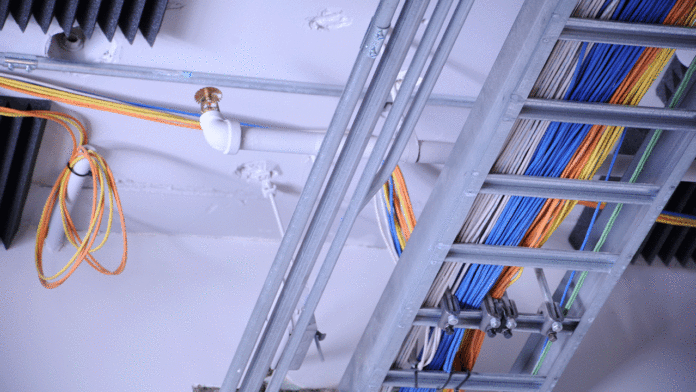Though often overlooked, electrical systems are essential to your home or commercial building. The system provides power to all appliances and lights and ensures everything runs smoothly. Unfortunately, like other installations, electrical systems should be taken care of for effective functioning. You should consider the following maintenance tips to prolong the lifespan of your electrical installations.
1. Upgrade the Control Panel
The electrical panel distributes power to all your electrical utilities and other outlets at home. Therefore, as electrical technology evolves, you should consider upgrading your residential or commercial electrical panels for improved end-to-end electrical solutions. Upgrading your electrical control panel improves the safety of your wiring system, gives more power to the outlets, and a higher amperage rating to electrical appliances.
An old electrical panel impedes the performance of your electrical system, especially if it gets overloaded with new appliances, HVAC units, and solar panel units. You should consider upgrading your control panel if you notice the following signs:
- If your circuit breaker trips frequently: A frequently tripping circuit breaker is a sign your control panel needs to be upgraded. An overloaded, outdated system is a fire risk.
- If your panel has fuses instead of circuit breakers: You should also upgrade as a safety measure. Fuses are not reliable compared to circuit breakers.
- If your electricity bill unexplainably increases: You should also install a modern system if your bills increase unexplainably. Upgraded systems are efficient and prevent property damage from overloading or overheating.
- If your home is over 40 years old: Old homes have old and outdated control panels. Outdated panels may fail to handle modern electronics and appliances well, causing dangerous failures and poor performance.
2. Schedule Regular Inspection and Maintenance
Scheduling regular inspection and maintenance by a professional is also prudent. Electrical systems should be maintained regularly to ensure the electrical infrastructure’s safety, efficiency, and longevity. Routine inspections help uncover potential hazards, such as worn-out wiring, faulty connections, and outdated panels in your system. These serious issues can cause electrocution, system failure, and electrical fires.
Frequent maintenance also helps conserve energy and prolong the lifespan of your equipment. Professional maintenance improves the efficiency and performance of your electrical systems. Professionals can assess the system’s energy consumption rates, identify areas that need improvement, and suggest energy-efficient upgrades.
Regular maintenance also prevents costly future repairs. Proactive maintenance saves considerable time and energy. Besides, you won’t have to worry about costly replacements and repairs. Professional maintenance helps address minor issues early and eliminates the need for unplanned downtime.
3. Don’t Overload Your Electrical Outlets
Electrical outlets have a limit to how much they can handle. Overloading typically means plugging too many appliances into the wall socket. According to the U.S. Consumer Protection Safety Commission, overloaded electrical outlets are responsible for over 5,000 residential fires. Therefore, you should consider the following to avoid being part of these statistics:
- Limit the number of plug-ins per outlet: Most people think having surge protectors allows them to plug in many items to their outlets. However, this isn’t true.
- Check your circuit breaker regularly: If your circuit breaker trips continually, chances are there is an overloaded socket. Circuit breaker trips are a sign of an impending issue.
- Don’t ignore signs of overloaded outlets: You shouldn’t ignore any signs of electrical faults. Warm or hot outlets, flickering lights, buzzing sounds, and a burning smell are signs of a serious electrical issue. You should also test your electrical systems frequently.
4. Keep Your Electrical Systems Away from Water
Though seemingly obvious, ensuring electrical appliances stay away from water is important. Ensuring your electrical outlets and appliances are dry and far from water prevents damage and eliminates the risk of electrocution and personal injuries. Surprisingly, living up to this isn’t difficult.
For instance, you shouldn’t touch electrical appliances and switches with wet hands, whether in the bathroom, kitchen, or laundry. If you are outdoors, don’t use portable electrical appliances or extensions when it’s raining or close to water. If your home doesn’t have RCDs, use a portable power board with RCDs to power outdoor tools and appliances.
5. Childproof Your Power Outlets
Even optimally functional electrical systems are a danger to children and pets. Therefore, as you maintain your electrical system, you should install safety settings where possible. Having tamper-resistant receptacles in all outlets is certainly the most important installation.
TRRs are an easy way of ensuring children don’t stick objects or their fingers into open sockets. These devices have built-in safety shutters that block anything from getting into the receptacle. Similarly, you should cover wires and codes with plastic sleeves to prevent them from being chewed by small kids or pets like bunnies and puppies.
Endnote
The lifespan of domestic or commercial electrical systems extends through five or six decades. They can fail sooner or last longer depending on their use, maintenance, and the environment. Maintaining your systems not only prolongs the lifespan but also prevents expensive repairs. Your systems will also function safely and optimally.

